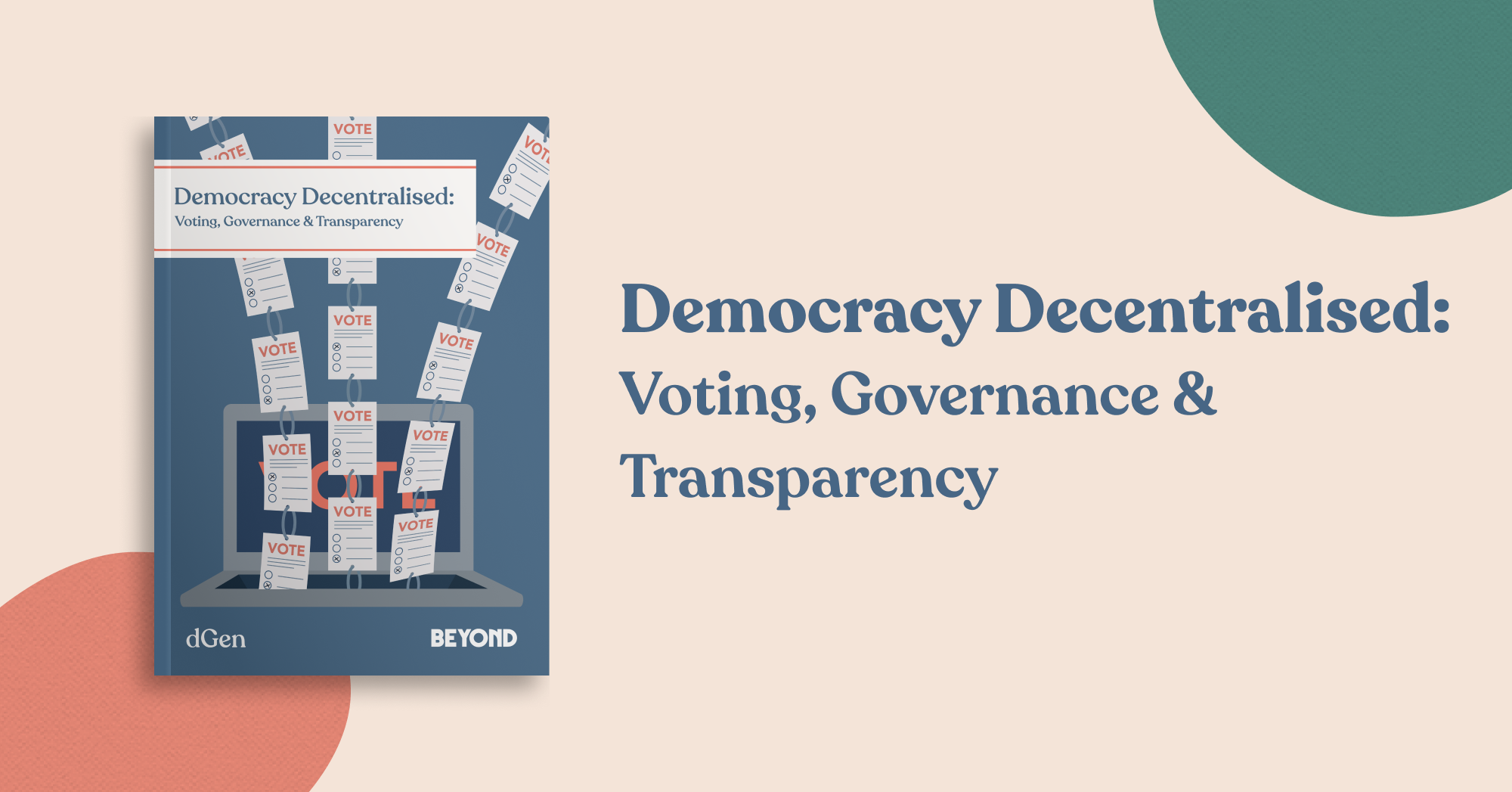For the most part, democratic processes have not seen major updates for decades. There is a current need to improve both voting and governance systems. This report investigates innovative solutions emerging in blockchain communities. We outline the major pros and cons of i-Voting and blockchain governance in addressing common transparency and legitimacy issues - especially in light of Covid-19’s impact on democratic elections.

To learn more about the future of voting and governance, download the full report.
This year’s pandemic compromised the natural course of democratic elections globally, stressing common pre-existing issues. Although some countries went forward with elections, providing measures to minimise risk, it resulted in lower voter turnout compared to previous years. On the other hand, those who postponed elections put the very core of democracy at risk.
All of this highlights the need for an online voting system to run in tandem with traditional voting options. Several initiatives have already been implemented, however, there are still problems related to transparency, security, accessibility, and secrecy. Blockchain-based solutions provide decentralised and automated systems to cast votes online, but beyond that, these models present the potential to rethink the very structure of representational democracies and governance.
If you are interested in our reports, sign up for our newsletter or reach out to us for future collaboration at partners@dGen.org.

To learn more about the future of voting and governance, download the full report.
It is generally recognised that many democracies globally suffer from problems related to transparency, centralisation of power, and accessing a secure means to vote. While Europe is widely viewed as a stronghold of democracy, it is not free from issues.
Over time, those weaknesses led to specific issues, including:
To regain trust of the electorate and give new and greater credibility to our democratic systems, we need to address these issues. Updates will require extreme caution, as well as specific awareness and knowledge of the social and political environment. But, if this is achieved, online voting systems, if complementary to traditional voting systems, could solve, or at least mitigate, many of the aforementioned issues.
Is merely updating how votes are cast and collected enough? It might be time to reimagine what democracy means, and to decentralise power back to the hands of citizens directly.

To learn more about the future of voting and governance, download the full report.
Many online voting initiatives have already been implemented at different governance levels in various countries. However, one of them stands out of others with likely the longest running national internet voting system, the Estonian i-Voting system.
It was introduced at the end of 2005 and now Estonia has reached a proportion of ⅓ votes cast via the internet, according to 2019 European Parliament elections data. The i-Voting system relies on three servers, following the double envelope scheme used on postal voting. The security of the system is further enhanced by enabling voters to authenticate in the portal with a digital ID and a digital signature PIN. Moreover, citizens have 7 days to cast their vote to avoid vote coercion.
Although the success of this system has also been recognised by European Commission, some experts believe that there is still a problem with ‘trust in central servers’ to be solved. In addition, it is fair to say that a positive experience of one country does not ensure the success of the model itself.

To learn more about the future of voting and governance, download the full report.
As technology continues to evolve, various blockchain-based proposals have come to light to address major transparency and security issues in voting. However, they are far from perfect and still need development. The utility of these systems goes far beyond vote collection, offering solutions that reimagine democracy.
Specifically, two initiatives have gained fairly widespread interest to develop online voting systems and address deeper governance issues.
Although our democracies’ problems persisted long before the Covid-19, it stressed these systems, potentially to the point of breaking. As remote voting systems are often criticised due to fraud, security or voter error issues, the need of modern voting options and more digitised democratic systems is now clearer than ever.

To learn more about the future of voting and governance, download the full report.
In this report we have explored various new voting models currently being developed using blockchain technology, pointing out benefits and weaknesses of them. Based on our analysis, we both expect and recommend:
Technology alone cannot fix these issues, and discussions need to be robust to address all of the concerns, but, bringing our democracies to pace with the rest of our lives is an essential step to ensuring their longevity. Particularly issues surrounding low youth voter turnout must be addressed in the next decade, potentially calling for more decentralised power structures in our democracies.